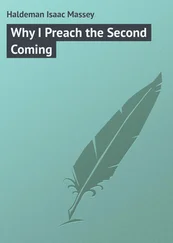Perhaps I am having some sort of an attack, he thought with interest, a stroke, hemorrhage, tumor, epilepsy. But if something is wrong with me, how is it that I can see so clearly and calmly, that I do not cast forward or backward from myself, am here in the here-and-now, and know what I am going to do?
But for a fact he may well have had one of his spells, for when he looked up, Ewell McBee had vanished without a trace. Swallowed up by the thick opalescent cloud.
9
So here he was, the engineer, as Will Barrett used to think of himself in the early days when he wandered around in a funk in New York trying to “engineer” his own life, now years later, after a fairly normal life, a fairly happy marriage, a successful career, and a triumphant early retirement to enjoy the good things of life. Here he was, more funked out and nuttier than ever, having experienced another of his “spells” as they used to be called in his childhood, which were undoubtedly a form of epilepsy to say the least and perhaps a disorder a good deal more serious. Here he was, pacing up and down his room, sunk in thought, smiling from time to time, and once snapping his fingers softly like a man who has suddenly hit upon the solution to a difficult problem. And indeed he had, or thought he had. So intent was he in planning his new “experiment” that he had forgotten about lunch, about his daughter’s impending wedding, about his guests downstairs and, for the moment at least, about his tryst with Kitty in the summerhouse. (Yet why did he look at his watch?)
The plan of action he had hatched would surely have seemed lunatic and laughable to the good folk of Linwood, or to any sensible person for that matter, if it were not fraught with dangerous, even fatal consequences. Though he had given up his peculiar preoccupation with the Jews — the Jews, it seemed, had not left North Carolina — he had conceived an even more outlandish scheme and now was making plans for putting it into action. It is one thing to labor under the delusion that all Jews had left North Carolina. It is something else to embark upon an adventure which would surely endanger his life.
What a shame he could not have relaxed and enjoyed life like his friends and neighbors in this, one of the pleasantest of all places. Good people they were by and large, business and professional men like himself who had worked hard, made money, raised families, been good citizens, and now were able to enjoy summer places or retire into condos and villas and savor the fruits of their labors. They walked in the woods ablaze with fall colors, played golf on a famous and sportive old links, went shopping for quilts or jellies or antiques, or simply sat about their patios having a sociable drink or two against a backdrop of Sourwood Mountain, gorges, and the faint blue hulk of the Great Smokies.
What a shame, considering his wealth and talents and general likableness, that he could not have enjoyed his life rather than raging at it, that he could not have gone on with his many charitable works as he had when his wife was alive.
Or, if he had no use for the company of ordinary retirees, there were more cultivated people available, classical-music-lovers, book readers, folk-music-lovers, serious bird-watchers, and the like. What indeed is wrong with listening to the Ninth Symphony, or discussing Erich Fromm with Lewis Peckham, and why did the prospect of spending time doing so make him groan aloud? No doubt Lewis Peckham and the doctors were right. Such negative feelings could only be symptomatic of a physical or nervous disorder.
No, instead of savoring the ordinary pleasures of leisure or gleaning the rewards of philanthropy or enjoying intellectual companionship, he must concoct one of the strangest schemes ever hit upon by the mind of man. He was right about one thing: it is doubtful if anyone had ever thought of it before.
And yet his “experiment” seemed to him the very model of logic, elegance, and simplicity. Such was his state of mind.
Ewell McBee, though an ornery unlettered covite despite his Jaymar Sansabelt slacks, a mountain man meaner than most, was right about one thing, he said to himself, pacing back and forth, setting fist softly into hand. He, Will Barrett, had learned over the years that if you listen carefully you can hear the truth from the unlikeliest sources, especially from the unlikeliest sources, from an enemy, from a stranger, from children, from nuts, from overheard conversations, from stupid preachers (certainly not from eloquent preachers!). When he used to go to church with Marion, he discovered that if you listen carefully to a dumb preacher, he will almost invariably and despite himself say something of value.
“As anyone can plainly see,” said one dullard called in from Asheville by Jack Curl to pinch-hit, “all the signs of Armageddon are present.” And in a droning voice he listed them, including the return of the Jews to Israel. On a beautiful Sunday morning in the mountains of North Carolina no one in the congregation paid the slightest attention — except Will Barrett, who, head slightly cocked to favor his good ear, had listened to every word — just as he had listened to Ewell McBee.
Are not great discoveries also made at the unlikeliest moments, such as listening to a droning preacher? His discovery had been made as Ewell McBee, towering over him in the garage, was going on and on about their childhood, about my daddy and your daddy, how much alike we are, and so forth. Ewell had given him the clue when he said how “smart” he, Will Barrett, was, smarter even than his daddy. “You don’t say nothing, Will, you just lay back like you doing now, listening and thinking, like you going to make some great discovery.”
What was the Great Discovery? We may as well say it right out. It dawned on him that his father’s suicide was wasted. It availed nothing, proved nothing, solved nothing, posed no questions let alone answered questions, did nobody good. It was no more than an exit, a getting up and a going out, a closing of a door.
Most of all, it offended Will Barrett’s sense of economy and proportion, of thrift, that so much, a life no less, could be spent with so little return. If one is going to do a dire thing, one may as well put it to dire practical use. In his Trusts and Estates law practice, he had learned that one often does well to attach huge conditions to huge bequests.
I will not waste mine, he thought, smiling.
Redneck Ewell was right, wasn’t he? It was his, Will Barrett’s, own sly way of “being smart,” that is, of standing aside and keeping quiet, looking on, observing commonplace disaster which everyone else accepts as a matter of course, then figuring something out which converts a necessary evil to an ingenious good.
“You remind me of the fellow in charge of a garbage dump who discovered he could run his car on garbage,” Ewell told him. “That way you do two things, get rid of the garbage and beat the Ayrabs — you like killing two birds with one stone, don’t you?”
Yes. Again snapping his fingers softly, he sat down at his desk, a fine colonial pine piece his wife had given him and where he had never sat before. He smiled again. It was a pleasure to sit at a proper desk, take out stationery and pen, hatch out a plan, and write the necessary documents to bring it to pass.
The “documents” were two letters, one to Lewis Peckham, the other to Dr. Sutter Vaught.
Dear Lewis:
This letter is a simple precaution. When you receive it, you can destroy it without reading further, for I intend in fact to see you today before you receive this letter tomorrow.
I take the precaution upon your own advice. In our spelunking days you told me never to enter a cave alone without telling someone where I was going.
Читать дальше












